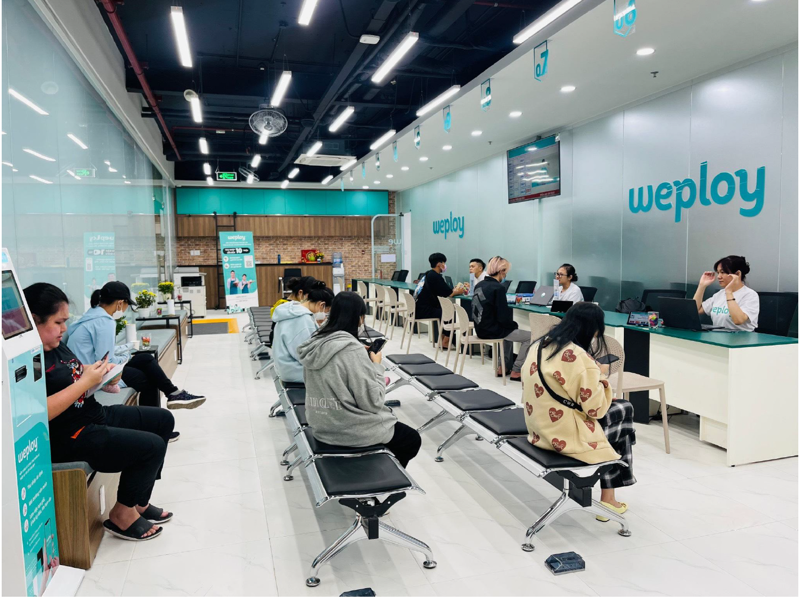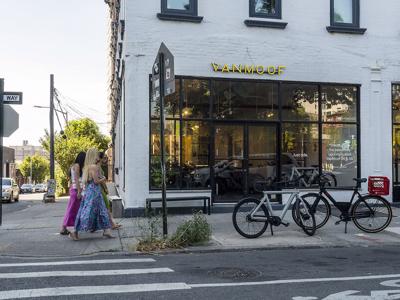Australian HR startup arrives in Vietnam
Mr. Trang Cong Phat, Co-founder and CEO of Weploy, tells VnEconomy / VET about the potential the Vietnamese market holds.

Weploy recently raised an additional $5 million in investment and officially expanded to Vietnam. How will this capital be used?
Weploy is investing in developing and providing food and beverage (F&B) training for unskilled workers, which will give them the skills and knowledge necessary to work in the industry. It will also provide support for workers to move from provinces to the city to access job opportunities. In doing so, Weploy not only creates employment opportunities for individuals but also meets industry demand for a skilled workforce. It plans to expand beyond Ho Chi Minh City to other cities in Vietnam by the end of the year, further improving access to employment opportunities and contributing to the country’s economy.
As an Australian-based human resources (HR) startup, why did Weploy choose Vietnam?
Founded in 2017 by Australian-Vietnamese entrepreneur Vince Luong and co-founders Tony Wu and Nick La, Weploy is committed to addressing the challenges faced by jobseekers in Australia and creating a more equitable and inclusive job market.
During his trip to Vietnam, Mr. Luong noted the challenges faced by jobseekers in the country, especially those with limited skills or education. After meeting with Steve Trang, a former Grab executive, they recognized the rapid expansion of the F&B industry in the country and the significant demand for skilled and professional workers. Weploy saw this as an opportunity to offer its innovative staffing solutions to businesses in the country and make a meaningful impact on the labor market. With its mission to create a more inclusive job market and its commitment to supporting jobseekers, Weploy is well-positioned to contribute to Vietnam’s economic growth and development.
Moreover, Vietnam is strategically located in Southeast Asia, providing a gateway to other neighboring countries and offering further growth opportunities for Weploy. With its expanding economy and large, young population, Vietnam is an attractive market for foreign investors. Overall, Weploy’s expansion into Vietnam aligns with its mission to create a more inclusive job market and presents a significant growth opportunity for the company.
What are the strengths Weploy holds in competing in Vietnam?
First is quality-assured staffing solutions for F&B businesses. Weploy’s platform provides businesses with quick and easy access to a pool of experienced and reliable unskilled workers trained in service, hygiene, and safety. At Weploy, we handle the entire recruitment process, ensuring that businesses get the right workers for their needs. This process guarantees that F&B partners receive skilled and dedicated workers who are well qualified and committed to providing excellent service.
Second is an experienced team. Weploy’s co-founders, including Australian-Vietnamese entrepreneur Vince Luong and Steve Trang, have extensive experience in the staffing industry and are committed to creating a more inclusive and equitable job market in Vietnam. The Weploy team has a wealth of experience in the staffing industry, having previously worked at Grab before joining Weploy. With our team’s knowledge and expertise, we are dedicated to creating a more inclusive and equitable job market in Vietnam.
Third is that our technology platform streamlines the recruitment process, making it quick and easy to access a pool of skilled workers. At the same time, our platform provides talented individuals with access to job opportunities that match their skills and interests. This approach benefits both businesses and jobseekers, creating a win-win situation for all parties involved.
What are the challenges when operating in Vietnam?
We may face challenges in sourcing skilled and committed F&B workers, as the industry in Vietnam is still developing. Additionally, the low level of education and skills among jobseekers may mean we have to invest heavily in training programs to develop the necessary skills and knowledge among workers.
Furthermore, competition in the Vietnamese market can be intense. To succeed in this competitive landscape, we will need to develop effective partnerships with local businesses and adapt our staffing solutions to meet the specific needs of Vietnamese employers. Building strong relationships with local communities and investing in local talent and infrastructure will also be crucial for Weploy to establish its brand and gain a foothold in the Vietnamese market.
How do you view the potential of Vietnam’s HR market in particular and the country in general for Weploy’s development?
According to a report from iPOS.vn, Vietnam is estimated to have had around 338,600 restaurants and cafés by the end of 2022. The F&B industry is anticipated to have reached nearly VND610 trillion ($26.5 billion) in revenue in 2022 and may reach VND720.3 trillion ($31.3 billion) in 2023. Despite the expected economic difficulties this year, market researchers Euromonitor have forecast that the F&B market value in Vietnam is expected to increase by 18 per cent in 2023 compared to 2022.
However, growth is accompanied by concerns about human resources in the industry. According to iPOS, up to 99.1 per cent of F&B businesses are concerned about their workforce. Specifically, 49.5 per cent of companies struggle to find employees and 37 per cent are concerned about the lack of professional staff. Though F&B industry revenue is estimated to reach nearly VND610 trillion ($26.5 billion) in 2022, the workforce in the field is mainly unskilled labor and lacks training, so don’t meet the needs of employers.
The iPOS report highlights the growing demand for skilled and professional workers in the F&B industry, presenting an opportunity for Weploy’s innovative staffing solutions to make a significant impact on Vietnam’s labor market. As a company committed to providing employment opportunities and supporting those seeking work, we are well-positioned to address the challenges faced by jobseekers in Vietnam and provide businesses with the skilled workforce they need to succeed.




















